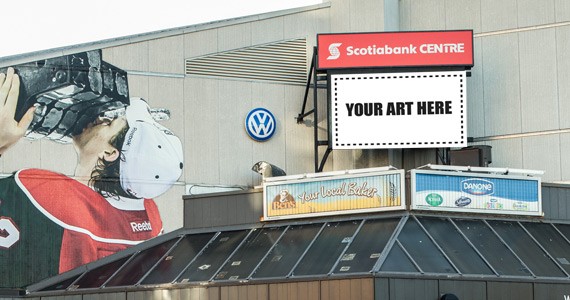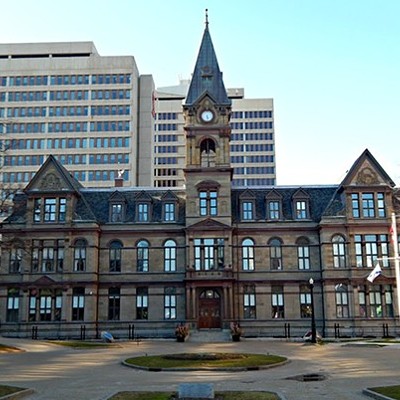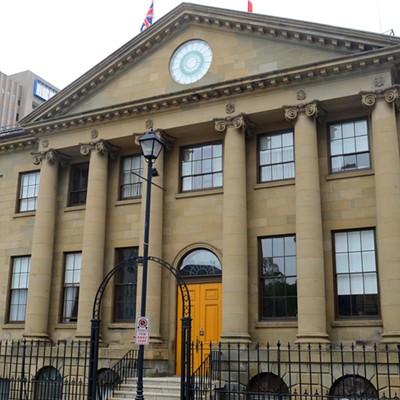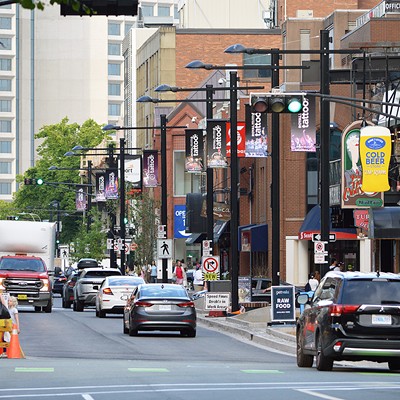Names are powerful things. They’re not just signifiers, but the means with which you and I can talk about our shared environment. That becomes annoying when the language is infected with sponsored advertisements. It’s regrettable then, that Halifax is so eager to sell pieces of itself off to the highest bidder.
There was BMO, snatching up the four-pad arena in Hammonds Plains. Emera, stamping its brand onto what we all still only ever call The Oval. Then last summer we said goodbye Metro Centre and hello Scotiabank Centre. The once plainly-named arena had its identity leased to Scotiabank for $6.5 million over the next 10 years. True, it will pay for some necessary upgrades inside, but at the cost of Scotiabank’s hellish red brand blazing across one of the city’s preeminent panoramas. And sadly there’s more to come.
Take the Canada Games Centre, for instance. The facility is still a long way off from the $2-million fundraising commitment it needs to reach. Back before the new year, councillor Stephen Adams immediately latched onto selling off naming rights as an “obvious” solution to that debt. Increasingly, it’s becoming the go-to fix for raising quick cash in HRM. City staff are already looking at selling the naming rights for every other public facility now that the “flagship” Metro Centre has been co-opted. Even gestures like the “free” Wi-Fi that Halifax is installing will be offset through corporate sponsorship (and probably a few pop-up ads).
Imagine though, if we went another direction. What if we eliminated corporate advertising on city property? It’s not so absurd. Grenoble, France recently became the first large European city to eliminate street advertising. Its 326 signs and 64 billboards are to be removed over the winter. In their place, Grenoble will plant 50 new trees and offer up space to local cultural and social groups. It’s a similar initiative to when São Paulo, Brazil outlawed advertisements back in 2006.
Grenoble claims they’ll only lose €150,000 annually through their scheme (they’ll still be selling ad space online). Any similar move by Halifax would also cost beaucoup denaros.
The city reaps $515,000 a year from bus ads, with an additional $125,000 coming in from bus shelter advertisements. Halifax also gets $150 for every ad sold on the city’s 150 bus benches. Naming rights—obviously—vary year to year, depending on what’s being sold.
So, it’s a tough sell. Wishful thinking, some might say. There’s practical problems the city can (and should) solve immediately that would save money instead of costing it. Eliminating corporate advertisements on city properties would be a loss of revenue—there’s no getting around that. But imagine how bold it would be, to declare our walls free from commercials. We could eliminate branded public content and proudly say Halifax deserves to stand unfettered by advertising supplements. We could be treated as for once as citizens, and not customers.
















